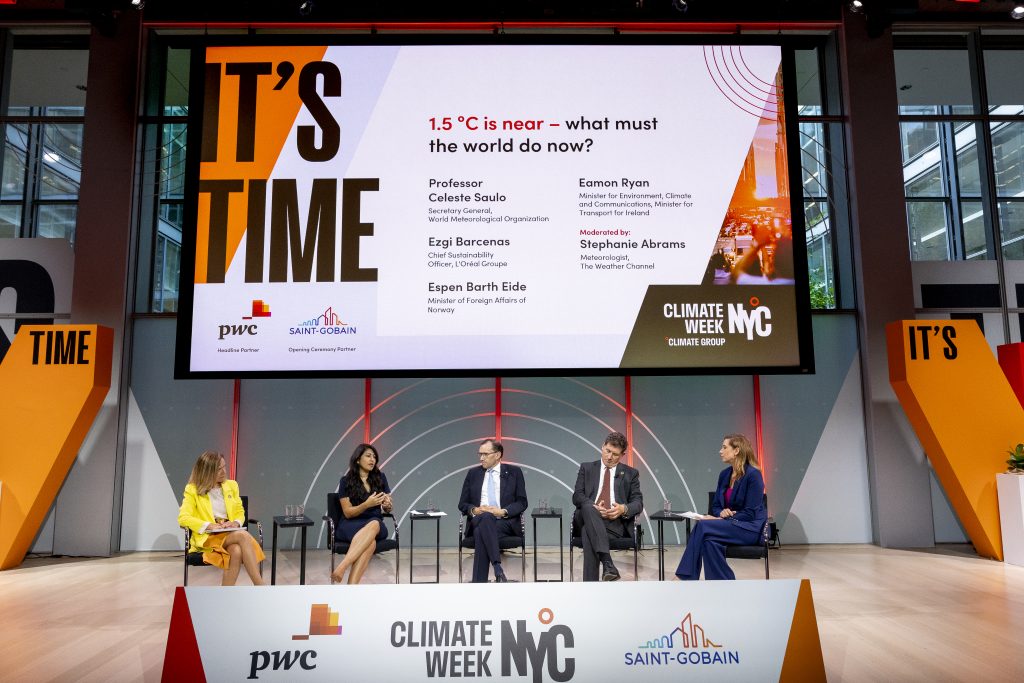This year’s Climate Week NYC, the largest to date, featured over 900 events—an increase of 50% from last year—and has been dubbed the “unofficial climate summit of the year” by Bloomberg. As the world looks ahead to COP29 in Baku, Azerbaijan, concerns are growing that fewer business leaders and bankers will attend. However, Climate Week NYC brought together leaders from various sectors, emphasizing the urgency of addressing the climate crisis.
The event highlighted the severe environmental challenges facing vulnerable nations, with the Bahamas’ Prime Minister, Philip E. Davis, pointing to the devastating impacts of rising sea levels and stronger storms. Al Gore also weighed in with a sharp critique of the current COP process, calling for significant reform. Following the hottest year on record, the need for coordinated global action has never been more pressing.
A dominant theme of Climate Week was financing the transition to renewable energy, particularly in the context of reparations for those most affected by climate change. UN Secretary-General Antonio Guterres urged for fossil fuel subsidies to be redirected toward a just energy transition, echoing calls that the world’s biggest polluters must bear the costs. Laurence Breton of the European Climate Foundation highlighted the imbalance in global climate finance, noting that the $7 trillion in subsidies given to fossil fuel companies in a single year could have funded three years of climate financing for lower-income countries.
In addition, the fashion industry took a more prominent role in this year’s discussions, reflecting its connection to sectors like agriculture and logistics. Decarbonizing the fashion industry emerged as a priority, with calls for greater responsibility for the communities impacted by the sector.
A cross-sector approach was identified as crucial for meaningful climate action. Fashion, finance, and energy leaders came together to explore collaborative strategies for decarbonization, emphasizing the need for coordinated sustainability efforts across industries.
The concept of a “just transition” also gained prominence, focusing on ensuring equitable outcomes as economies shift to clean energy. While clean energy jobs are growing quickly in the U.S., there are concerns about the disproportionate impacts of climate change on lower-income countries. Leaders from Small Island States reiterated the need for reparations, with former U.S. Secretary of State John Kerry calling for more accountability from oil and gas companies.
Youth activists were also a powerful presence, demanding climate justice and underscoring the intergenerational nature of the crisis. Events like UPROSE’s “Climate Justice Lives Here!” in Brooklyn illustrated the importance of grassroots movements in driving local solutions.
Policy discussions at Climate Week reflected geopolitical tensions, with some governments hesitant to make new climate commitments ahead of elections. However, collaborations such as the Rockefeller Foundation’s partnership with the World Bank to provide renewable electricity to 300 million Africans by 2030 showed the potential of joint financing models.
Innovation also took center stage, with new technologies offering solutions to the climate crisis. One notable example was the launch of Regen™ for Textile Production, a technology aimed at reducing microfibre pollution in oceans, potentially cutting 120,000 tonnes of pollution annually.
As the global community turns its attention to COP29, the urgency of Climate Week must carry forward. The interconnectedness of industries, the need for innovative financing, and the emphasis on a just transition will be critical to achieving meaningful climate action. While the conversations and commitments from Climate Week are vital, true progress will depend on the actions taken in the months ahead.








